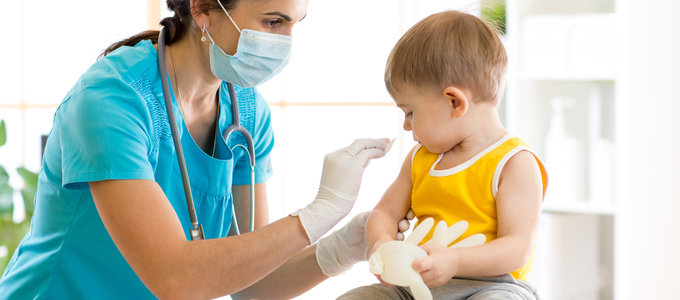I'm not letting you give our 'vulnerable' child a Covid-19 jab !

This week sees the Government rule on the rolling-out of Covid-19 vaccines to children.
The evidence on the harms and benefits of vaccination has been reviewed by the UK's Joint Committee on Vaccination and Immunisation (JCVI).
It has recommended vaccinating children aged 12-15 if they are at higher risk of Covid due to:
- Severe neurodisability (which could include conditions such as cerebral palsy, autism or epilepsy)
- Down's syndrome
- A severely weakened immune system, including some children with cancer
- Profound and multiple learning difficulties
Those at higher risk who are already aged 16 or 17 can be vaccinated under existing rules.
View the Government announcement here
The Covid-19 vaccination for children
The rolling-out of the COVID vaccination jab is progressing well. Children who are classed as vulnerable aged 12-15 are now being offered the CV jab [announcement 19 July 2021]. However, the vast majority of children will not be immunised.
Vaccination disagreement
For those who are eligible, some parents could be divided in the decision as to whether their child receives the vaccine.
If separated or divorced parents cannot agree on the issue of the Covid-19 jab, then separated parents may even resort to the courts for a ruling.
Everyone has their own opinion on whether they want to have the vaccine and likewise parents have differing opinions on whether their child should be inoculated for standard vaccinations and the coronavirus vaccine will be no different.
With all new medical treatment, there is likely to be some scepticism surrounding the vaccine. If parents cannot agree on whether their child should receive the vaccination, legal proceedings may be necessary and likely to be the only way to resolve this issue.
- At present in the most reported case, the family court held that if the administration of a vaccine is in the best interests of a particular child, a parent can be overruled.
Standard vaccinations (e.g. MMR) will most likely be deemed necessary for the child’s health. The risks of not receiving the vaccine outweigh those of receiving it for most children. However, given the lack of familiarity and evidence of effectiveness of the Covid-19 vaccine in younger age groups, there is some degree of uncertainty.
- Parents who may have differing views of the Covid 19 vaccination for their children should be having these discussions now if their child is in the group to be immunised.
- The present situation is - if one parent wants their child to be immunised but the other parent does not, a court application can be made in order for the specific issue to be determined by a judge.
The Children Act 1989 sets out who has parental responsibility for a child. Mothers automatically have parental responsibility for their children. A father also has parental responsibility if he was married to the mother when the child was born, or if he subsequently married her, or he enters into a Parental Responsibility Agreement Since 1 December 2003; an unmarried father who is the natural father of the child can also acquire parental responsibility if he is named as the father on the child’s birth certificate. A step-parent may acquire parental responsibility of a child where s/he is married to, or a civil partner of, the child’s parent who has parental responsibility and either:
-
there is a parental responsibility agreement to this effect; or
-
the court grants a parental responsibility.

Emma Piff, Solicitor and Head of Family at Lawson-West Solicitors in Leicester provides her view:
“Sadly, if parents cannot agree then the only way is to apply to the family court.
If Public Health England (PHE) support and recommend a vaccination, then it is most likely that the court would decide that it is in the child’s best interests to receive it.
Given the severity of coronavirus and the global impact it continues to have, we can only assume that a child having the vaccination will be supported.”
Emma adds:
"If you foresee that negotiating an agreement with your ex-partner for vaccinating your child will be extremely difficult to obtain and you consider it is in the best interests of the child's health to have the jab, then please give me a call and we can discuss your options on 0116 212 1000."
View all

